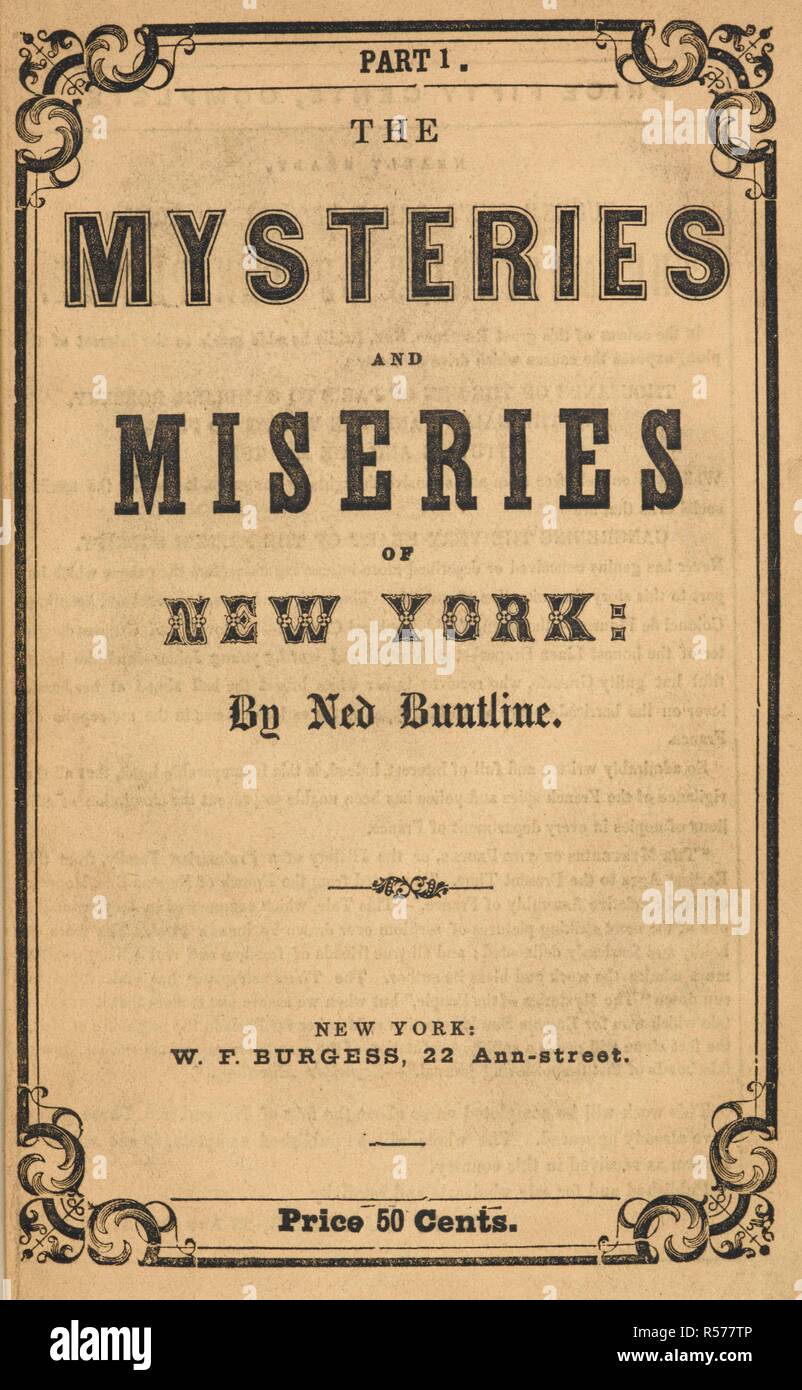
Originally Posted by
hellsapoppin

HELL is repeated so many times in the book that its symbolism here cannot possibly be misunderstood.
When Maggie goes off with Peter, Mary refers to him as that "jude fellow". Evidently, being a Jew makes Pete into a menace. Maggie goes "to the DEVIL" according to her mother. "We'll have a HELL of a time" he tells Mag.
Somehow this soils Mag's reputation (she is now "cursed forever") and Pete is suddenly confronted by Jim and an associate about it. He has "the glare of a panther" and the three fight like "roosters". Jimmie sees the cops coming and he flees. Rather than trying to save his pal he says, ''oh, what the HELL".
To Mag, Pete is like a "lion of lordly characteristics". she admires him and briefly views him as a protector. "Wealth and prosperity was indicated by his clothes". While everyone looks at her strangely, "she imagines a future, rose tinted, because of its distance from all that she previously had experienced".
How wrong she was! In Christianity the apostle Peter is said to hold the keys to the Golden Gate. In Crane, he brings about Maggie's hellish downfall.
Mary goes into yet another drunken rampage and is put before a police court. The magistrate tells her, "Mary, the records of this and other courts show that you are the mother of forty-two daughters who have been ruined. The case is unparalleled in the annals of this court, and this court thinks—"
Evidently, it had been an endless cycle of drunkeness, violence, endless excuses, and dissipation for her.
Maggie continued to go with Pete for three weeks. She had a "spaniel-like dependence" on him. Pete had been "leonine" but is rather submissive to a skank named Nell who turns her back on her date to speak with him. The date called a "mere boy" refers to Pete as a "plug ugly". He drinks "as if replying defiantly to fate". Pete and Nell leave while Mag and the mere boy chat uncomfortably. He then pays her fare for her to get home.
Jimmie is followed by a girl he got into trouble. But he eludes her. He escapes and finds his way home. Maggie returns only to be taunted by everyone. She leaves in despondency.
Pete feels some guilt over what happens. But Nell says that Mag is "a pale little thing with no spirit". Mag implores Pete to take her back but he says "GO TO HELL!" Indeed, she tried to approach a preacher but he thought she was a hooker and avoided her in order to save his reputation. She walks the streets for several months barely surviving. As she walks those streets, they get darker and darker.
Pete nearly drinks himself into oblivion. Nell says Pete never betrays anyone nor go back on his word. "I'm a good f'ler" sez he in his stupor as he slurs his words. He stumbles on the floor and drops his money which Nell picks up happily and stuffs into her pocket.
Mary is told Maggie has died. Seemed like people felt more badly for Mary than for her deceased daughter. "She's gone to where her ter'ble sins will be judged". "Her life was a curse an' her days were black." All implore Mary to forgive her. I the end she shouts "I'll forgive her, I'll forgive her!"
As Sancho said above, Maggie is a "flat" or shallow character. She is weak, vulnerable, naive, and given to being overly dependent. But why? Clearly, Crane views Gotham as a HELL on earth. He repeats the word HELL so many times throughout the story and repeatedly equates the characters with animals in this sordid society. There is no real free will, all is predetermined. Death, destruction, dissipation, poverty, misery, want, are all one is fated to endure in this hellish, atavistic society. The church is no real help. People scurry to and fro. Many do work but no background information is given so that we could determine why or how they escaped these terrible conditions. For all its troubles, the Lower East Side did have many settlement houses, anti-vice organizations, and relief agencies. There were also progressive political groups which sought to reform society that the problem of prostitution would be dealt with as a health problem and not a crime. Why were these not mentioned in the book?
Gotham sure is a HELL on earth according to Crane. What's worse is that he does not appear to believe there is any hope for anyone who is in it.
As they say all throughout the story, "ah, what the HELL?" Such is fate, there is no escape.



 Reply With Quote
Reply With Quote



